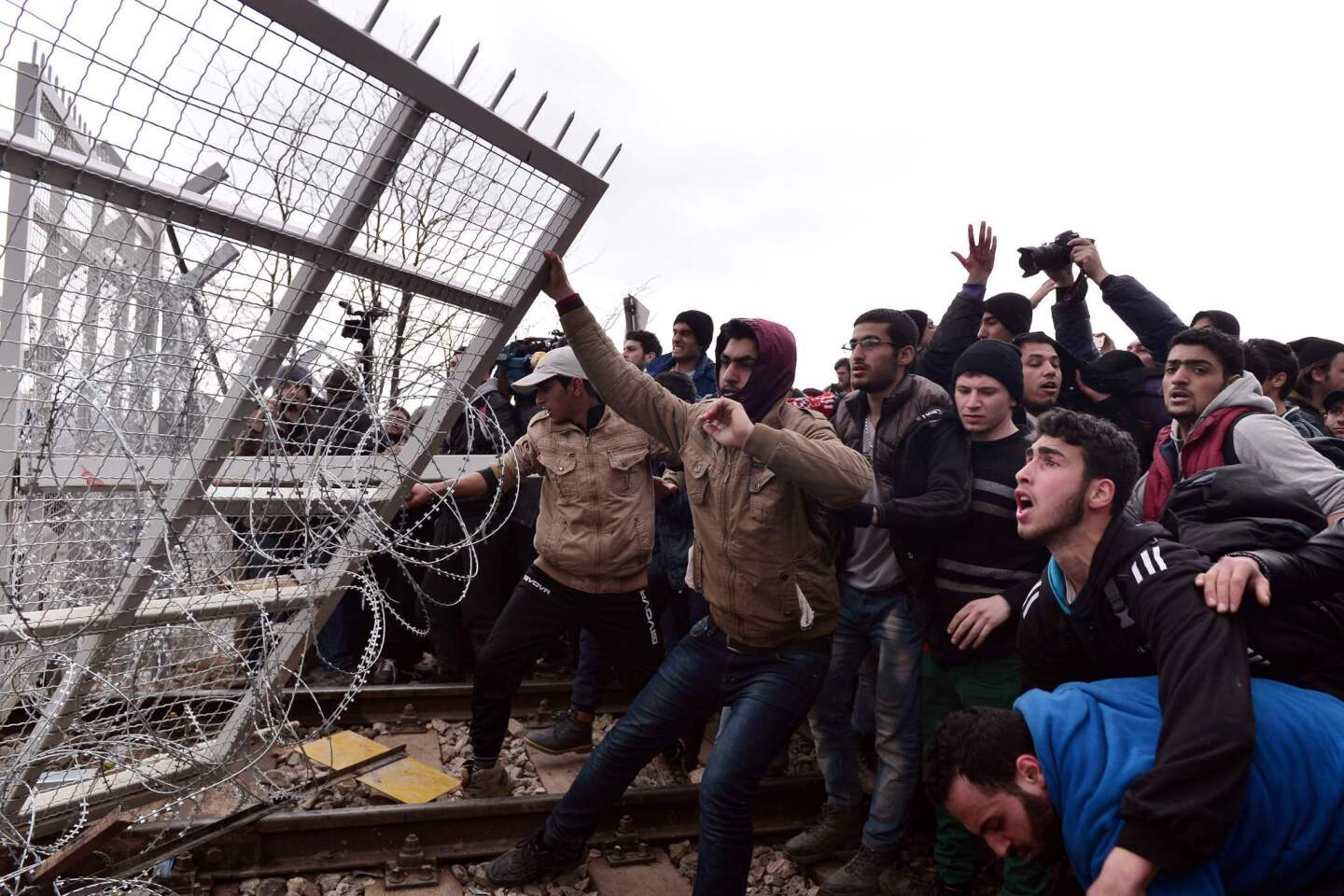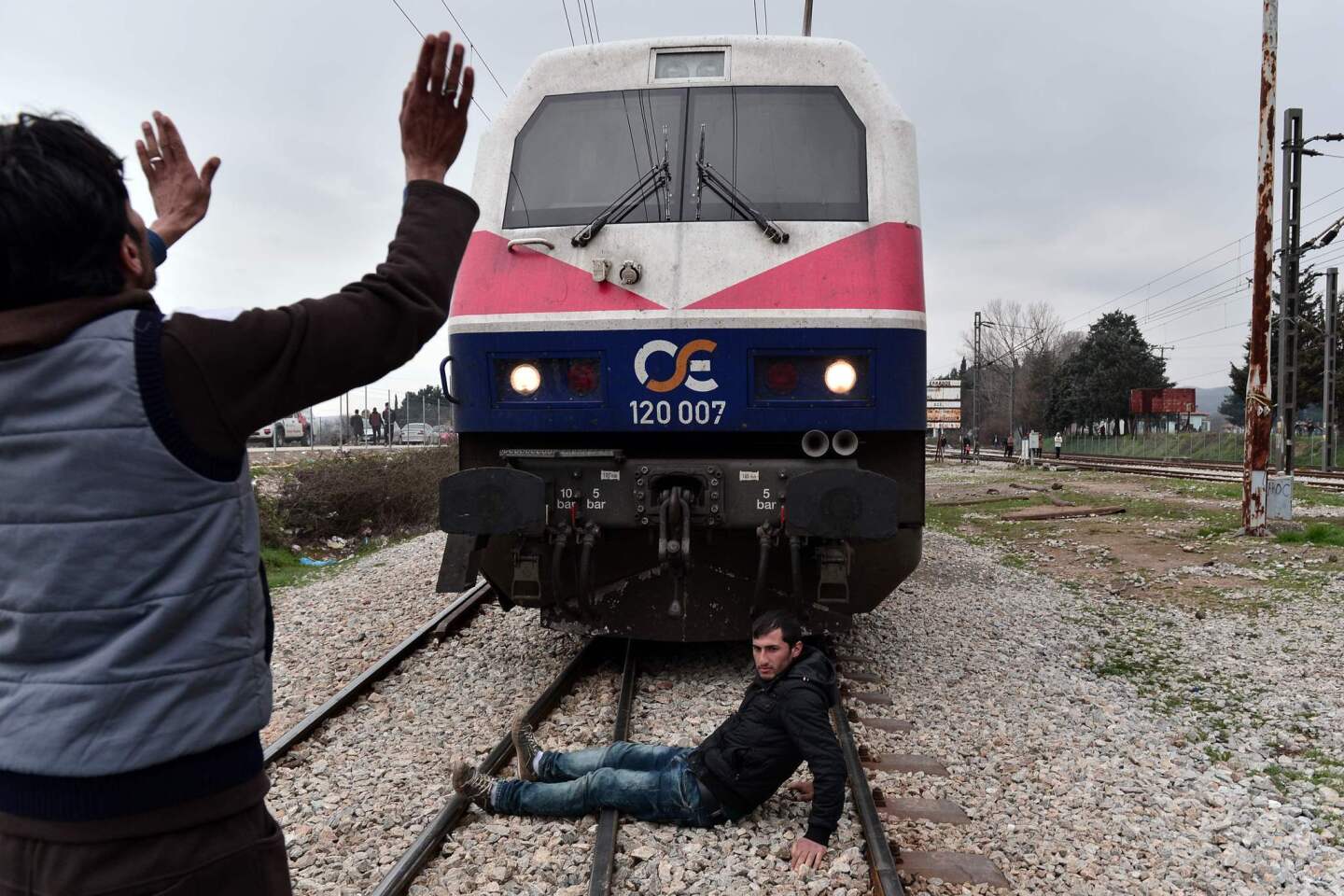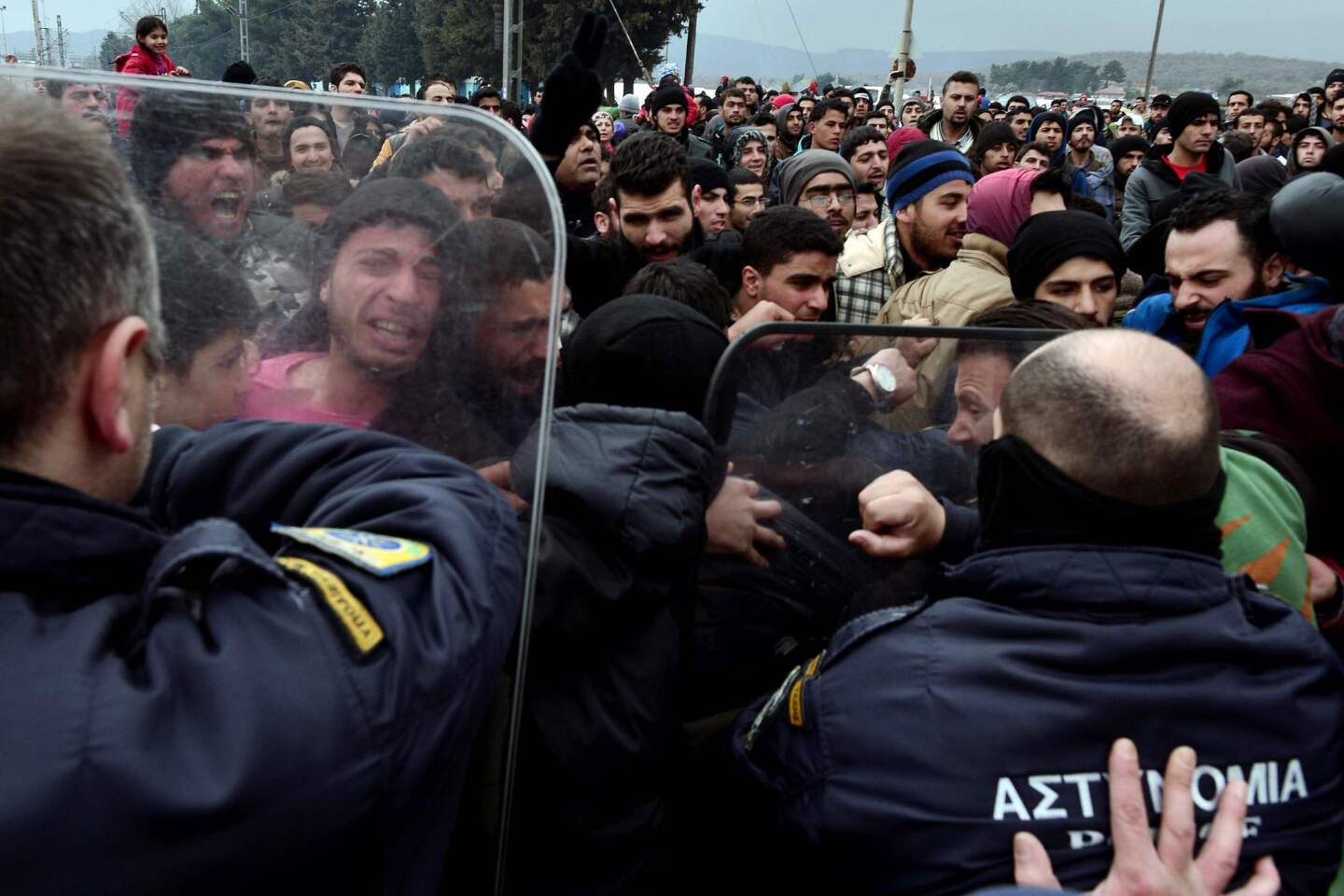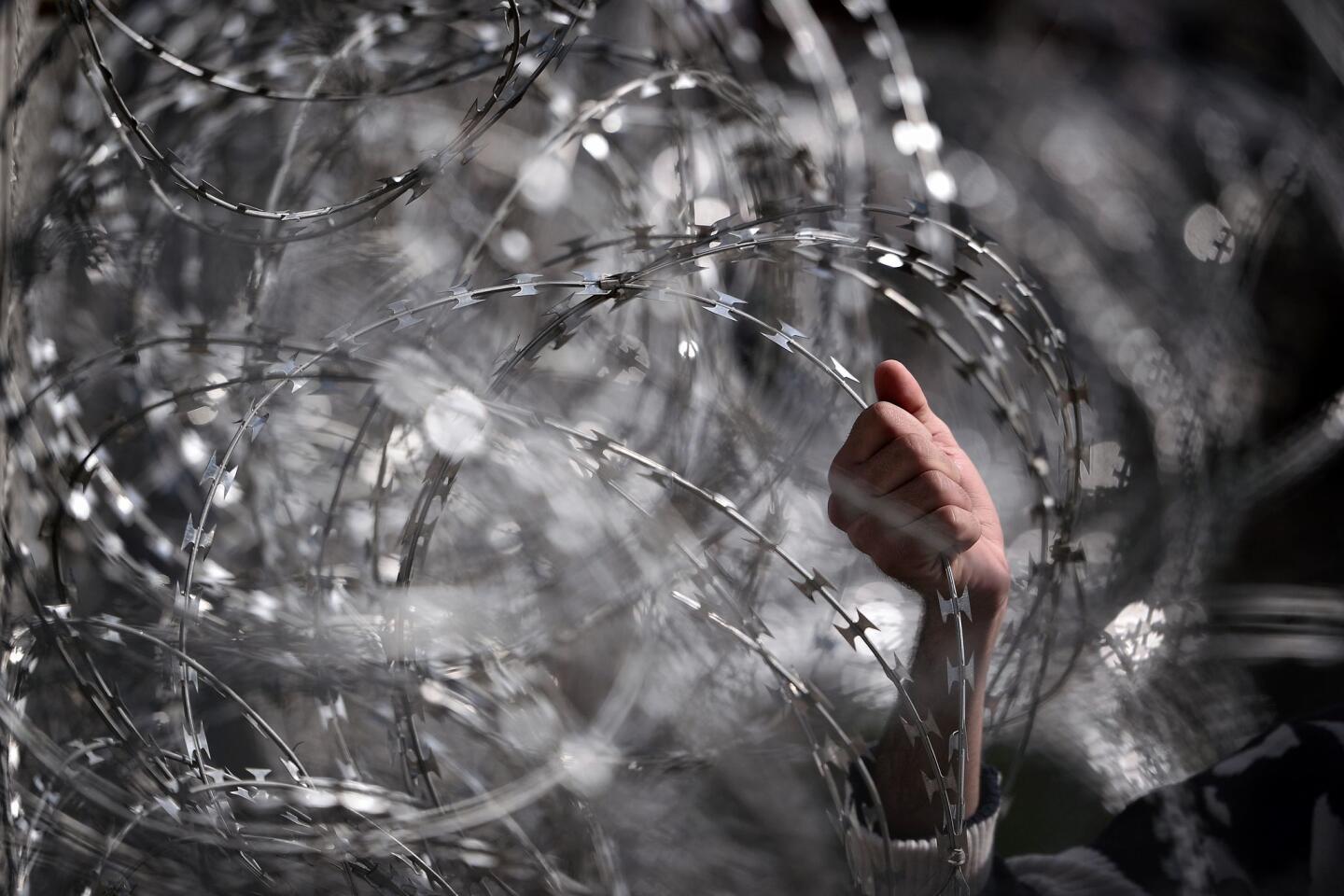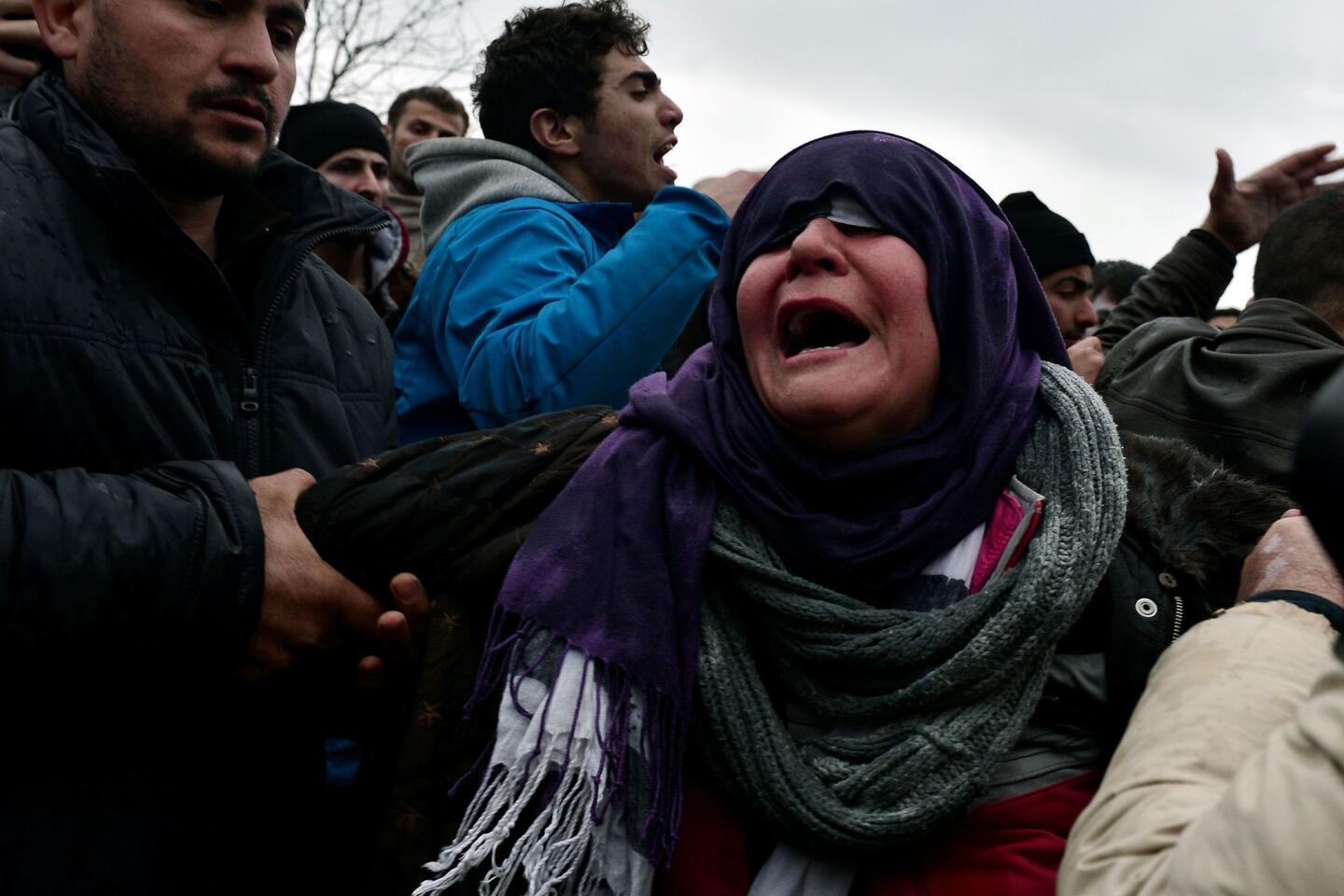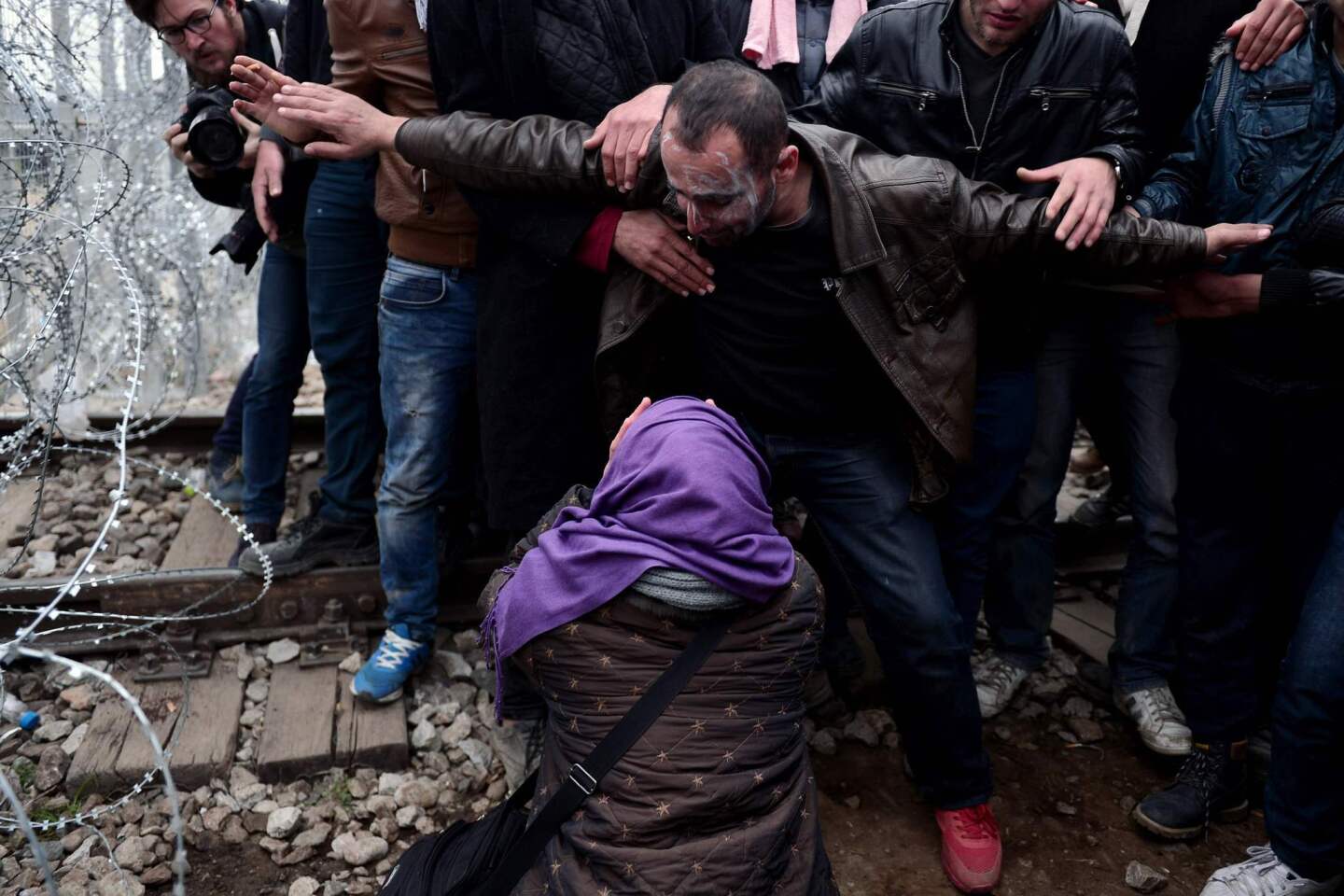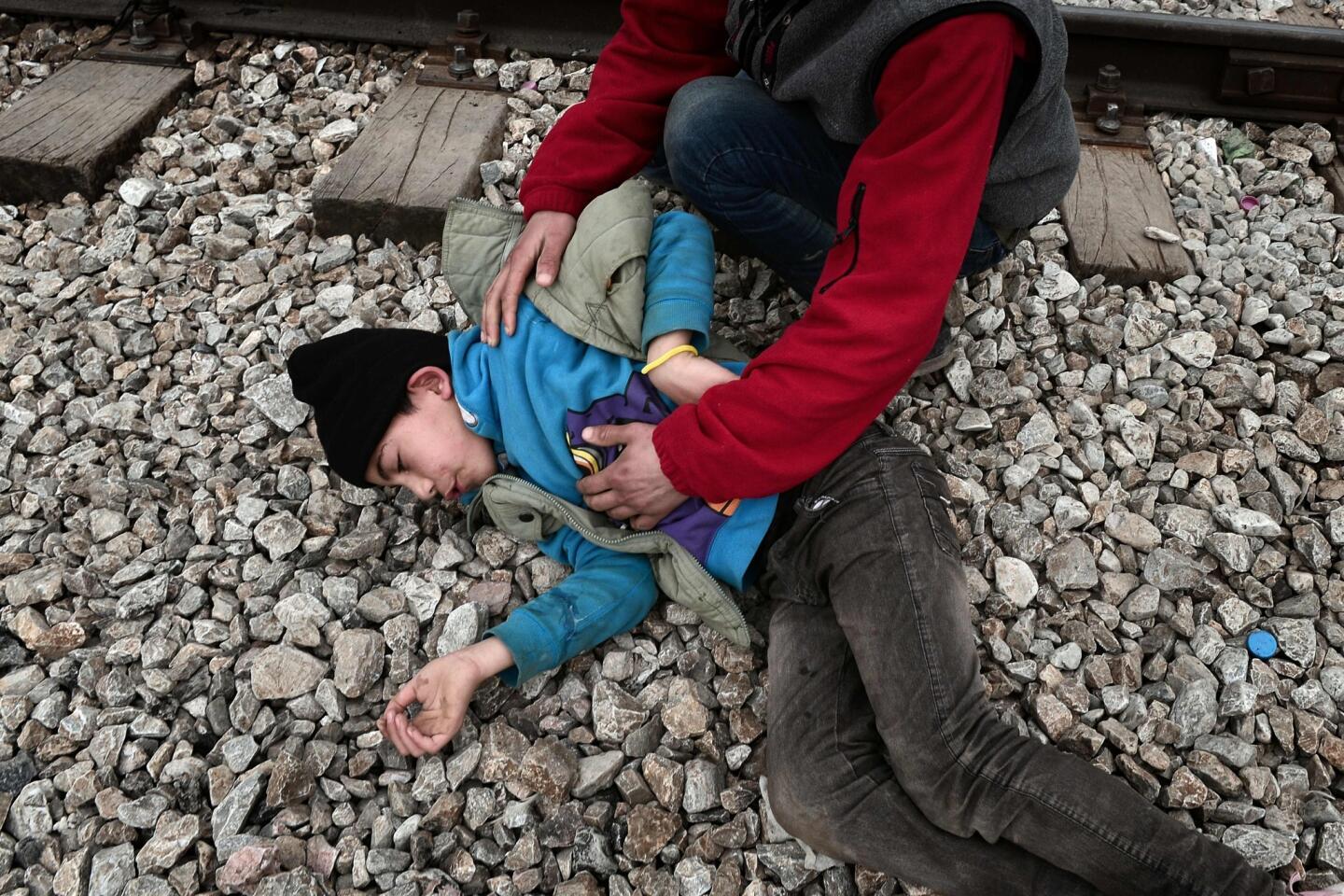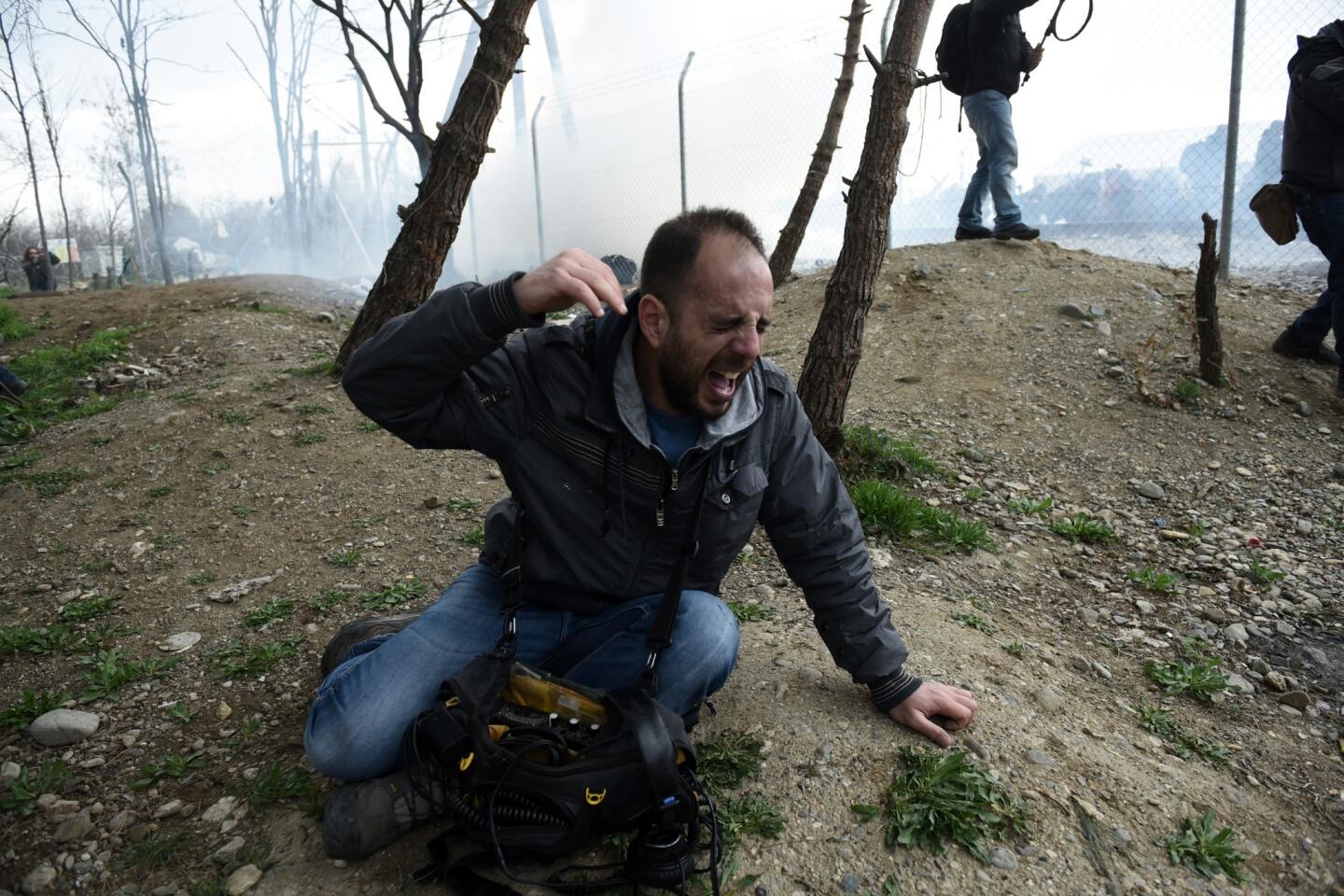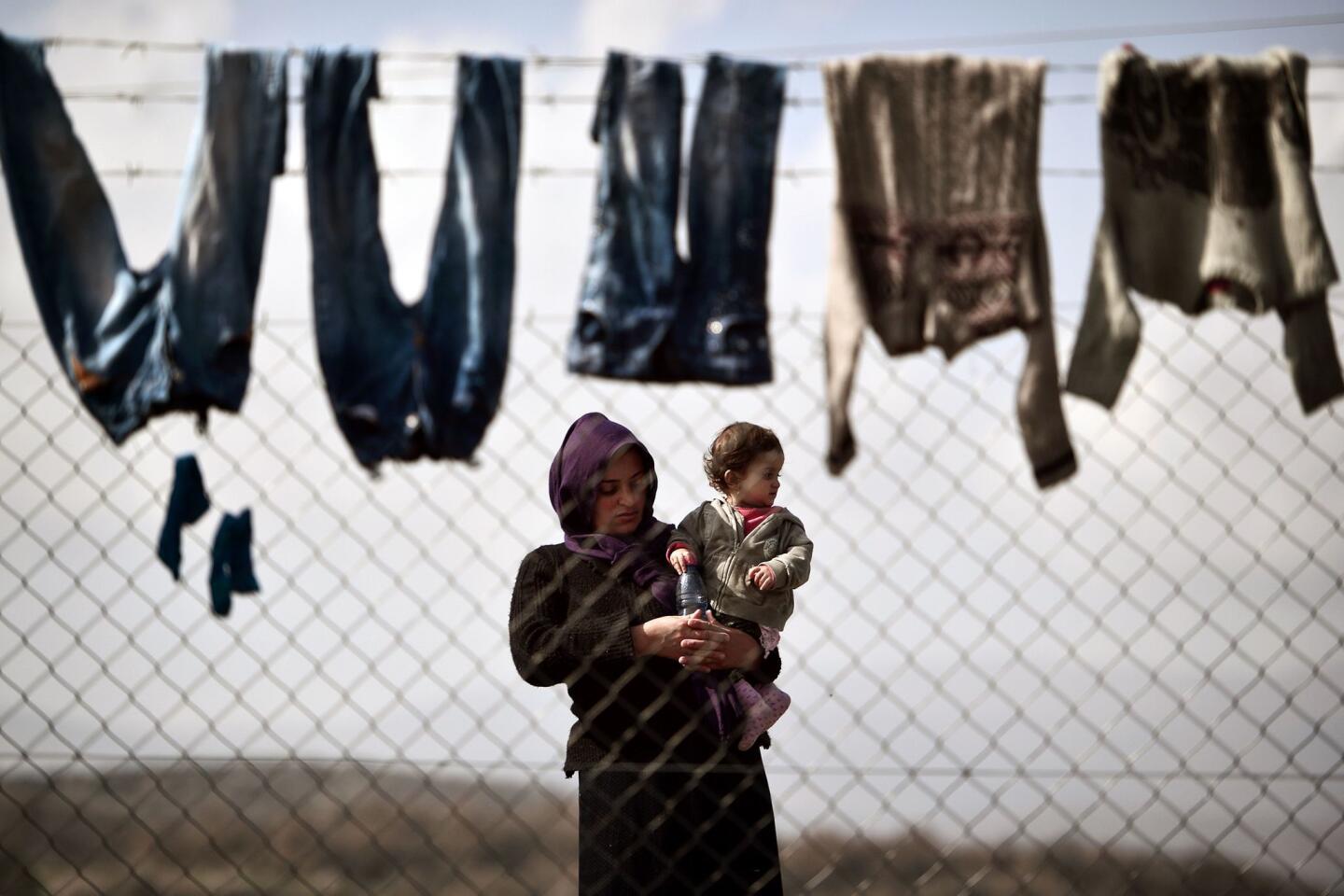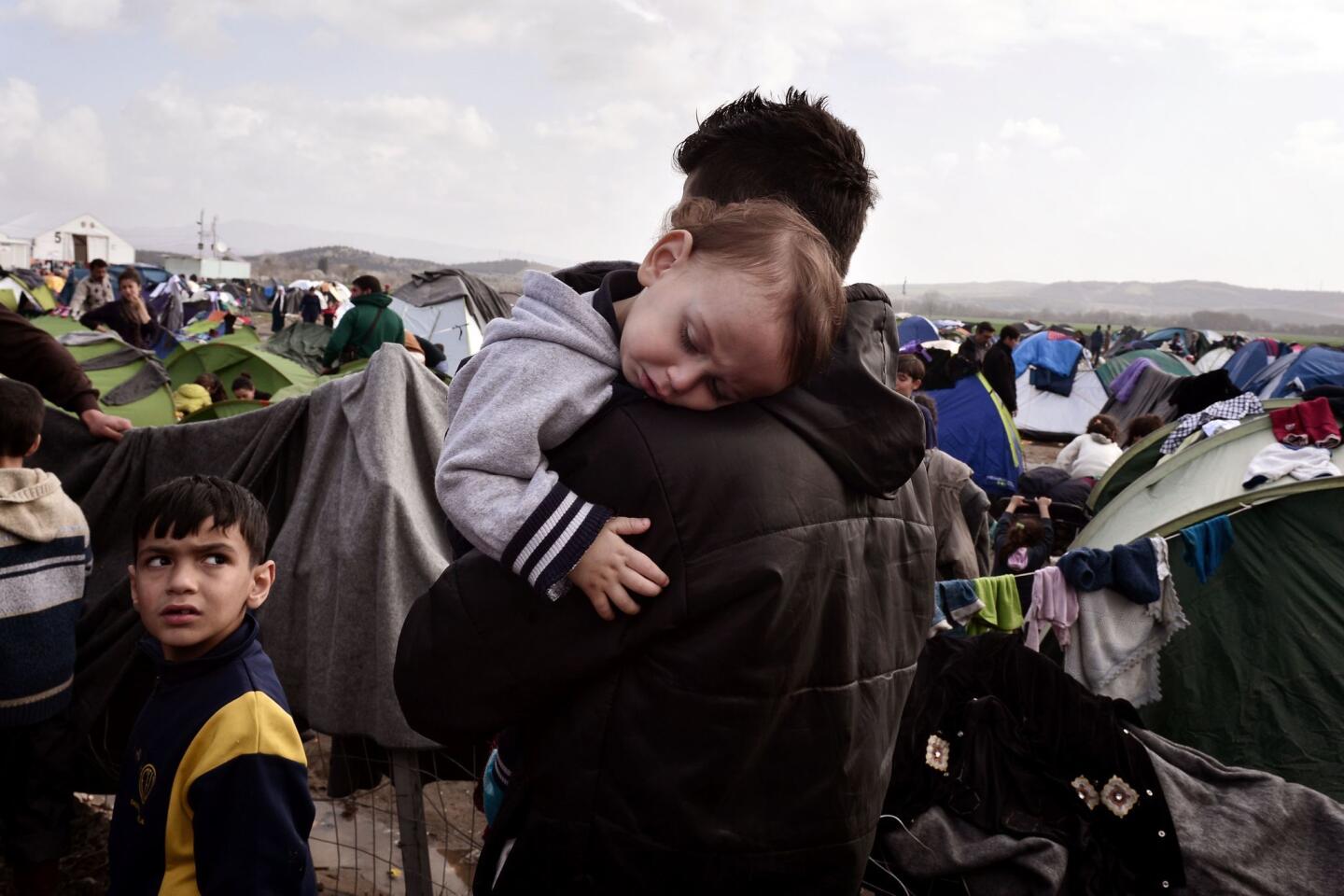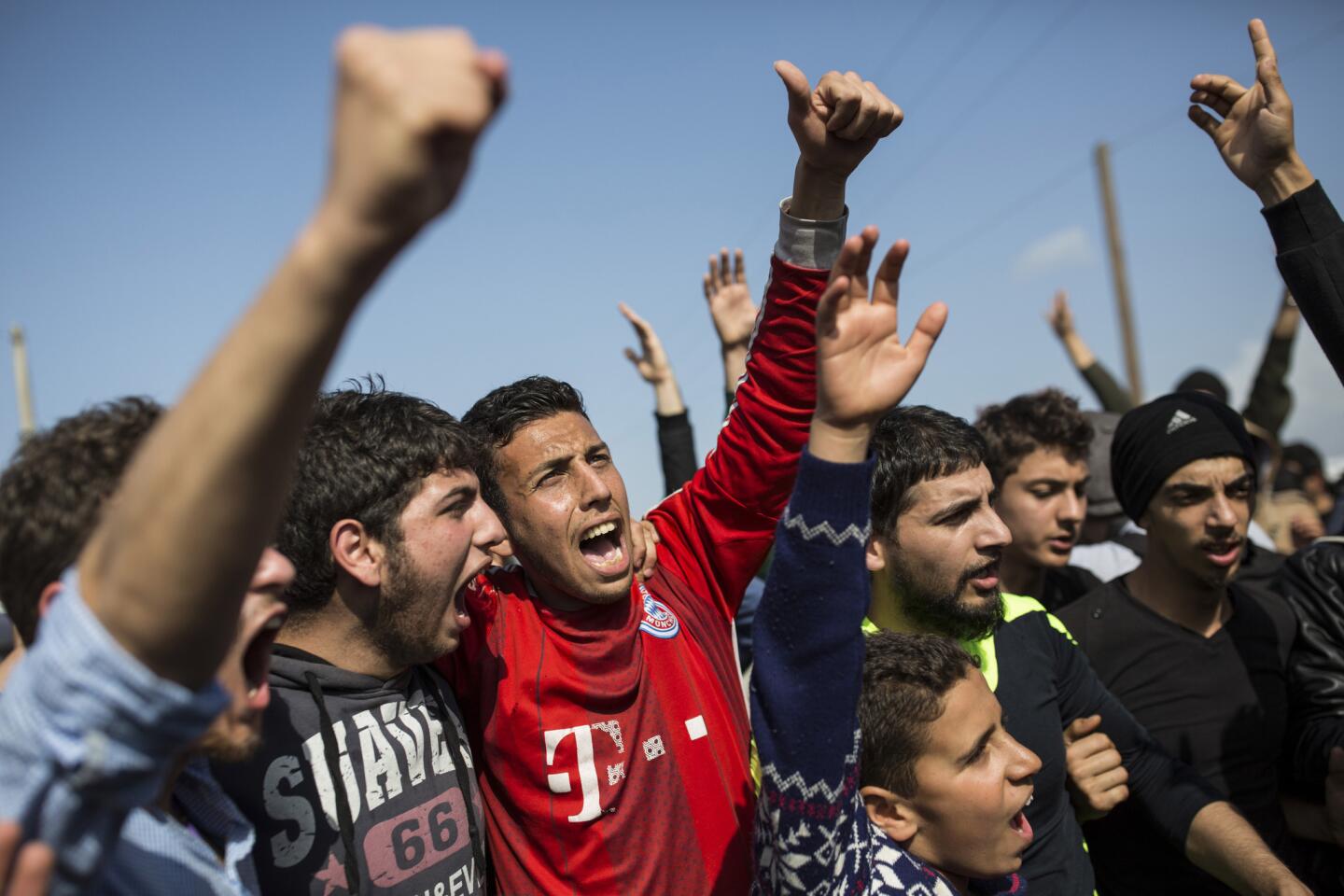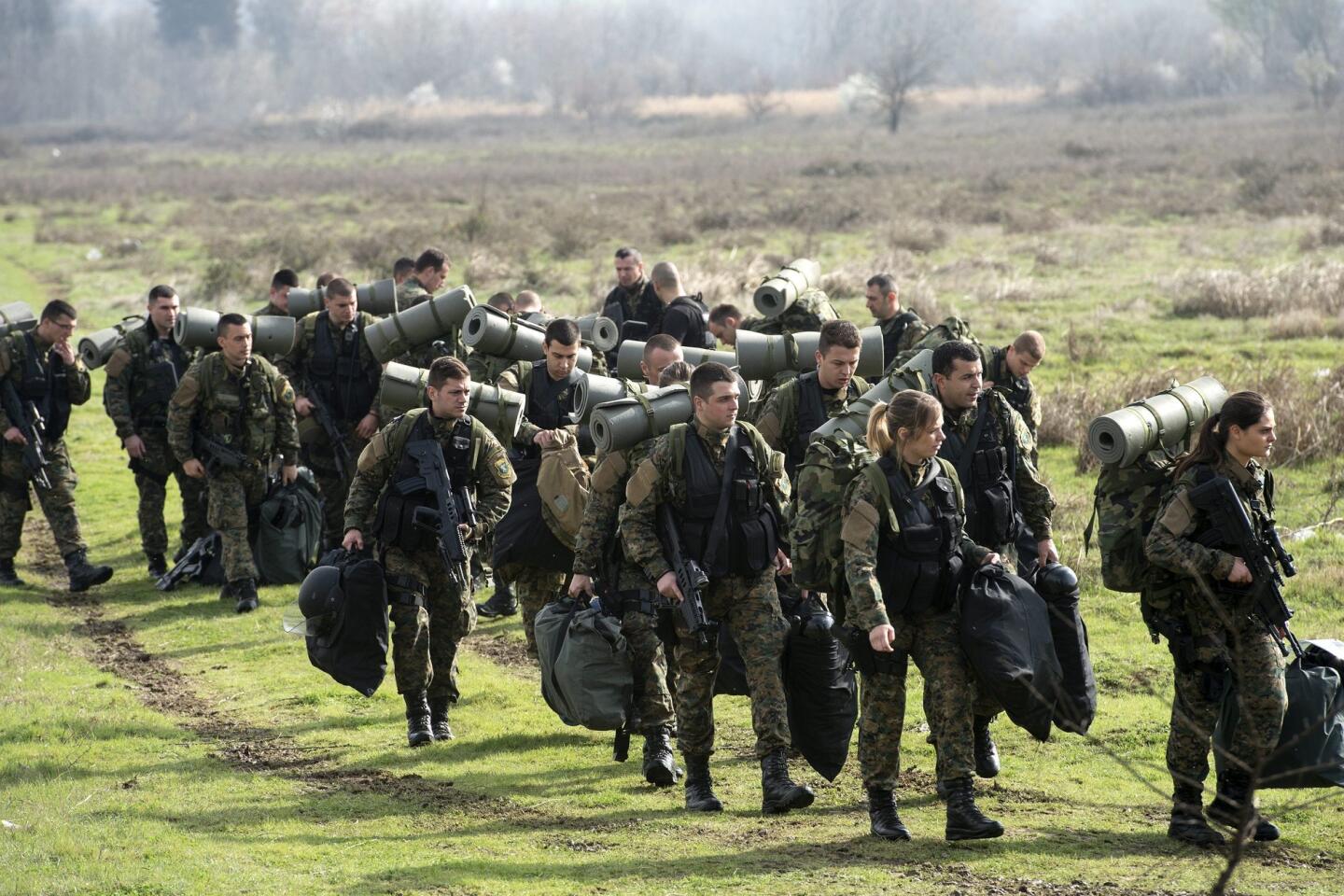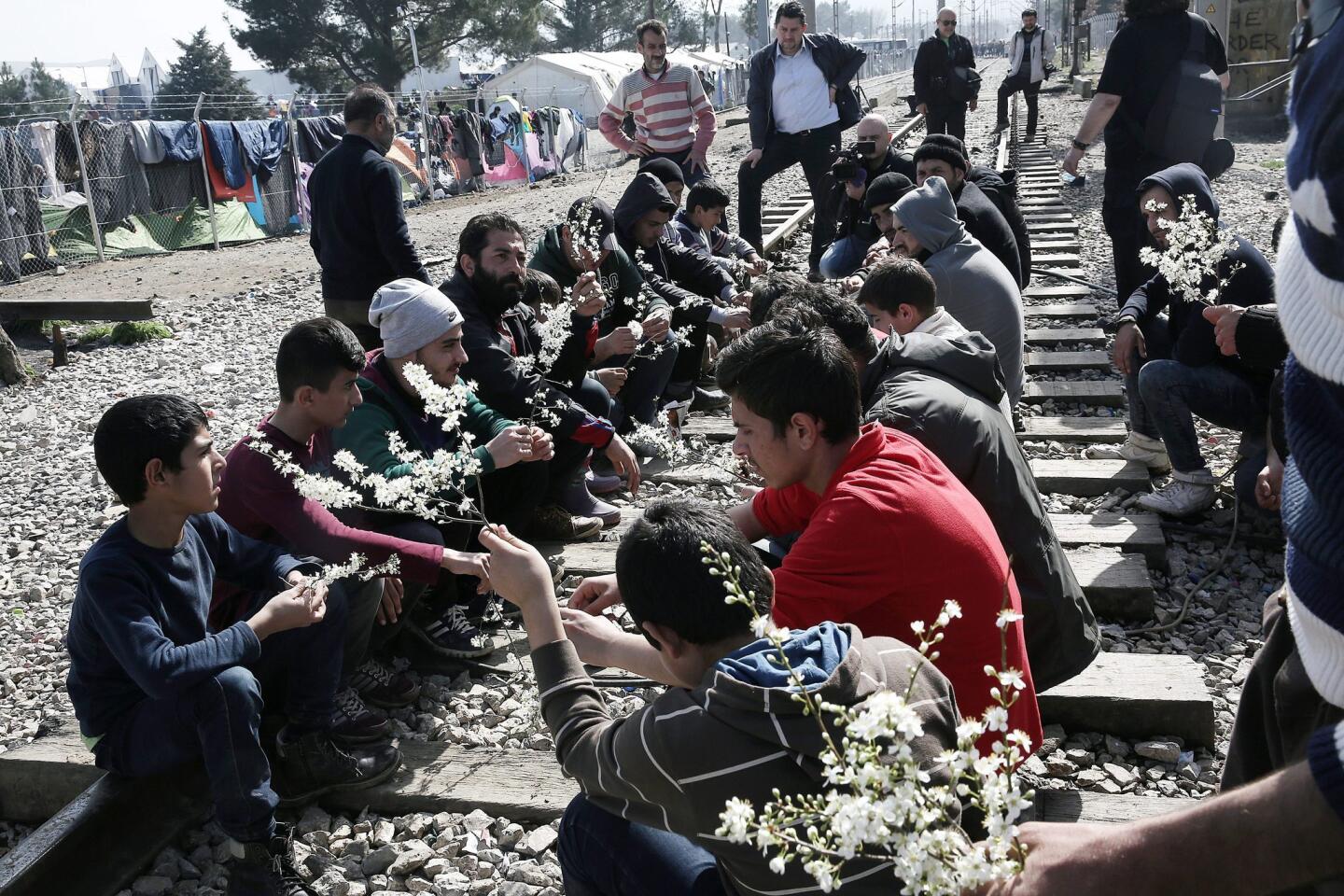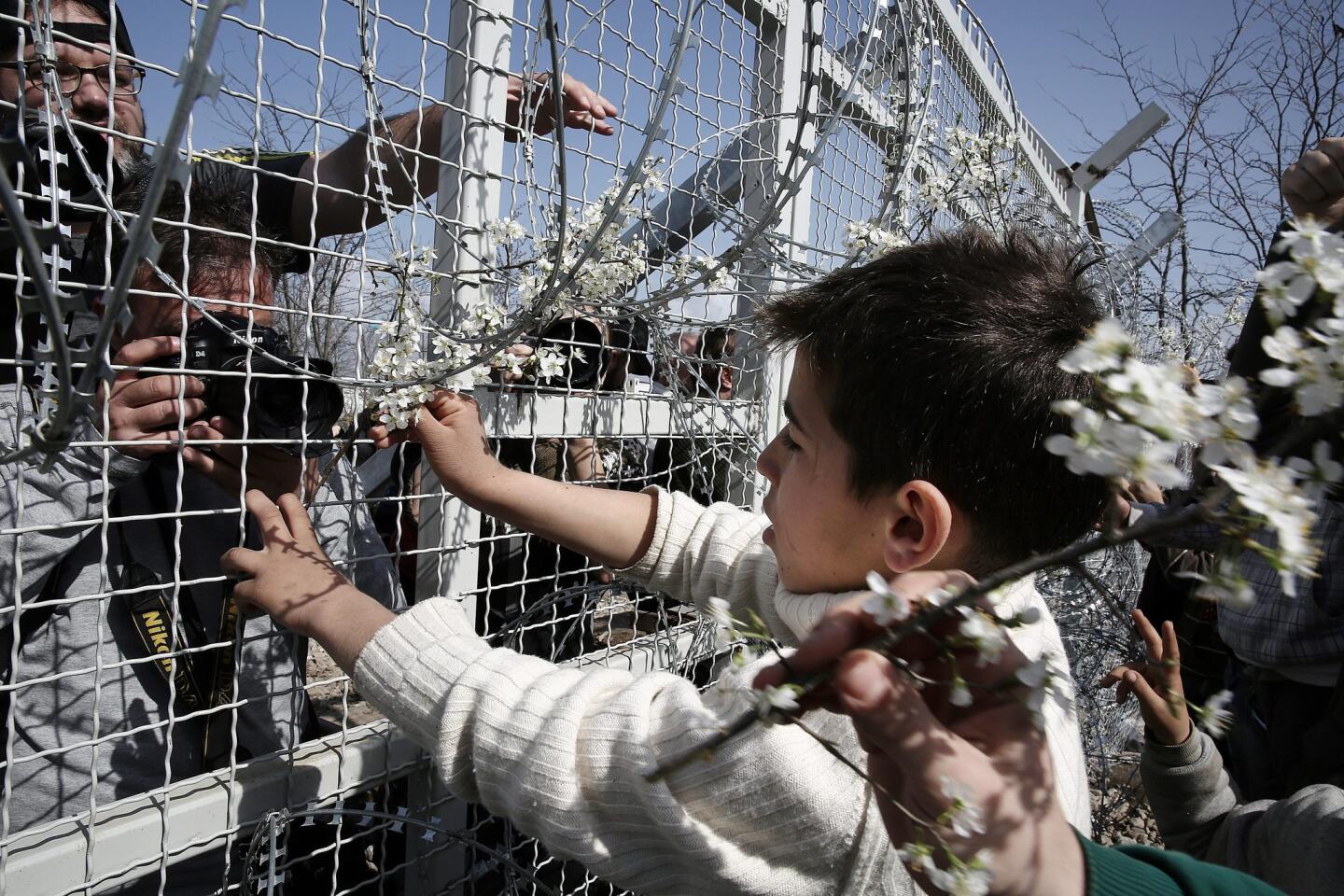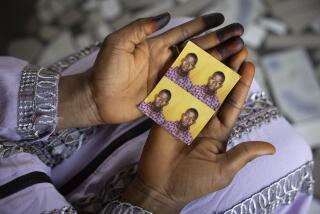Thousands of migrants backed up at Greek border as Europe’s refugee crisis worsens
Reporting from Idomeni, Greece — Wael Alagha was curling up for the night on the cold ground outside a freeway rest stop. He had a black ski jacket and blanket to shield him from the night’s cold, but still shivered slightly.
Around him, dozens of people sat around fires that filled the air with acrid smoke. In tents nearby, charities handed out tomato sandwiches and bottles of water. Young men crowded around picnic tables to charge their phones, intermittently shouting over access to the outlets.
For weeks, thousands of migrants, many from Syria and Iraq, have been stranded on this tense border between Greece and Macedonia. Fleeing war, or poverty, or grim prospects at home, they have been trying to get north, through the Balkans and on to Germany or Sweden — but a closed border has left them sleeping here in the open.
In January, Austria announced strict limits on the number of asylum claims it would accept, spurring a series of border closures in the Balkan countries north of Greece. Since then, Macedonia has been allowing only limited numbers through, and pressure has been mounting.
NEWSLETTER: Get the day’s top headlines from Times Editor Davan Maharaj >>
On Monday, Macedonian police fired tear gas and stun grenades to subdue migrants who stormed the border and tried to tear down the barbed-wire fence. Greece’s migration minister has warned that 70,000 migrants could end up “trapped” in Greece.
The flow of refugees heading this way is increasing by several hundred a day, and United Nations officials said Tuesday there are now an estimated 8,500 migrants waiting for passage in this quiet rural community.
Alagha, 21, left his hometown in Syria in early February and was hoping to make it to the German town of Marl, where his fiancee has been for three months. The two haven’t seen each other since November.
Instead, he is stuck at a camp for migrants and refugees here in Idomeni, a small farming village that is the settlement closest to the border.
Idomeni was a name unknown even to many Greeks until it became in recent months a focal point of Europe’s migration crisis. The town sits along a path that begins in Turkey, where migrants go by sea to one of Greece’s islands, then by bus to Athens and north toward Macedonia.
The camp is a cluster of tents set amid farm fields. Occupants sprawl out on bunk beds in the tents or pick up food and bottled water at booths. In one corner, there are tables with paper and crayons for children to draw. The drawings, hung on a wall, show houses and smiling families.
Alagha sat on a wooden bench with several other young Syrian men, fighting off boredom and the stress of not knowing how long they will be in limbo. “Maybe later today, maybe tomorrow,” Alagha said of moving on. “I just want to go. There’s nothing to do in Syria. There’s nothing to do here.”
The young men ask every uniformed aid worker or volunteer who passes, “Do you know when they will open the border?” The answer is always no.
In late January, a strike by Greek ferries meant that arrivals from Turkey couldn’t get from the islands to the mainland, and that slowed the flow north. But ferry traffic resumed after that and the camp has been filling fast. Bus after bus pulls in, and passengers disembark lugging backpacks and suitcases.
Alagha was fleeing his hometown of Aleppo, which has been split in two by Syria’s civil war, one side controlled by the government, the other by a mishmash of rebel militias.
Over the past few years Alagha heard screeching bombs and rockets whenever he tried to sleep or study. His patience ran out a few weeks ago when a close friend was shot in the leg by a sniper.
“I realized then that I could die at any time,” he said.
Join the conversation on Facebook >>
He paid a smuggler 1,200 euros (a little more than $1,300) to take him from Aleppo into Turkey. The smugglers, he said, abandoned him and the other refugees he was traveling with on a mountain near the Turkish border. He had to walk for an hour dodging border guards, then crawl through a hole in a barbed-wire border fence.
Alagha’s plan is to join his fiancee in Germany, where he says first he will learn the language, then look for a school where he can work toward a degree in medicine. But with the border shut, those plans were on hold.
Alagha paced in the afternoon sun, looking for something to pass the time. He watched German language instruction videos on YouTube (the camp has free wi-fi) but said he misses movies — simple, romantic ones are his favorite. “I like romance and want to live a simple life,” he said.
Alagha said he is sure that he and his fiancee will be reunited in the end. But for the moment, all he could do was wait.
“It’s like the governments are trying to make the situation so bad that we all give up and go home,” he said. But he was determined to keep moving.
Borowiec is a special correspondent. Special correspondent Maria Petrakis in Athens and the Associated Press contributed to this report.
ALSO
Italian Senate passes bill recognizing same-sex unions, but strips adoption rights from measure
Refugees buying one-way tickets home after finding Germany intolerable
There was no Trump on the ballot, but Irish voters still made their anger clear
More to Read
Sign up for Essential California
The most important California stories and recommendations in your inbox every morning.
You may occasionally receive promotional content from the Los Angeles Times.
